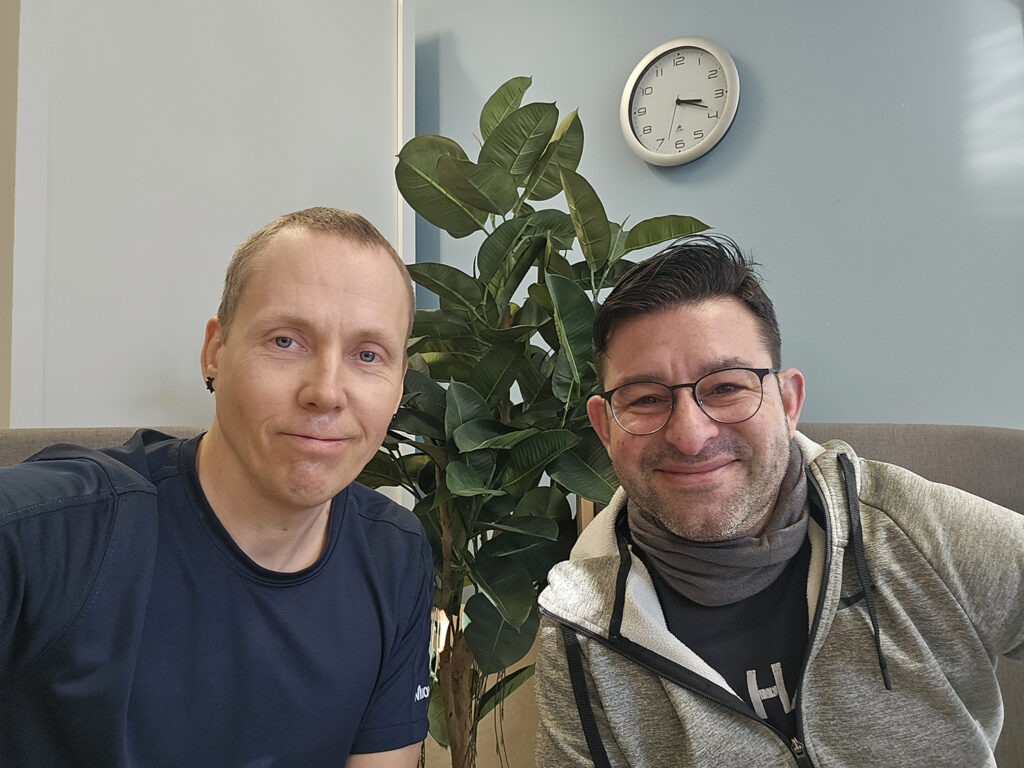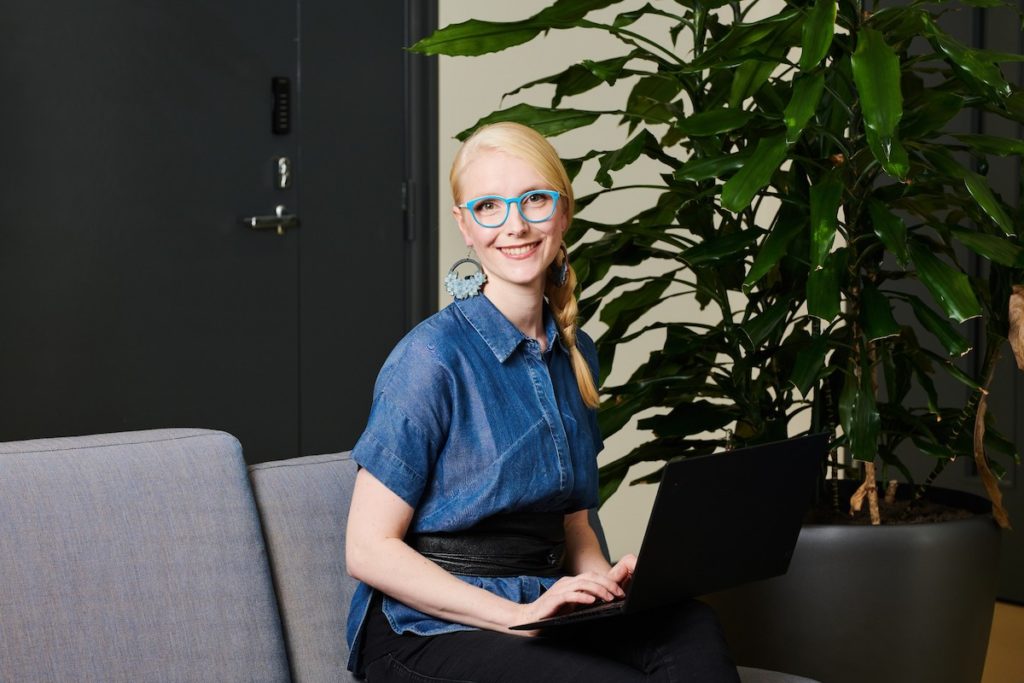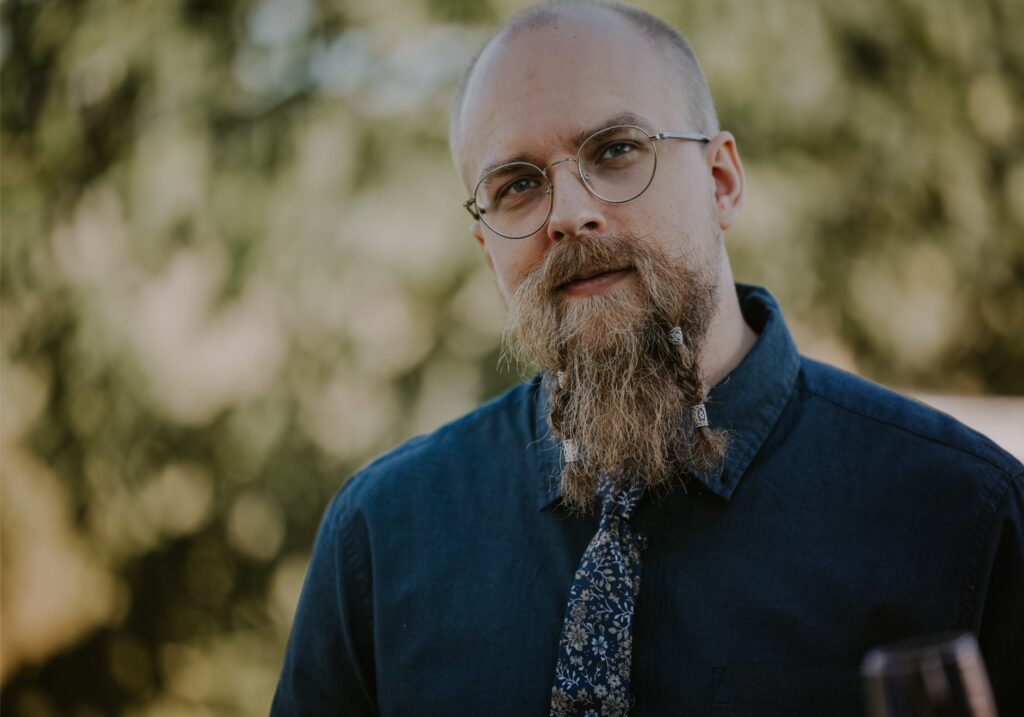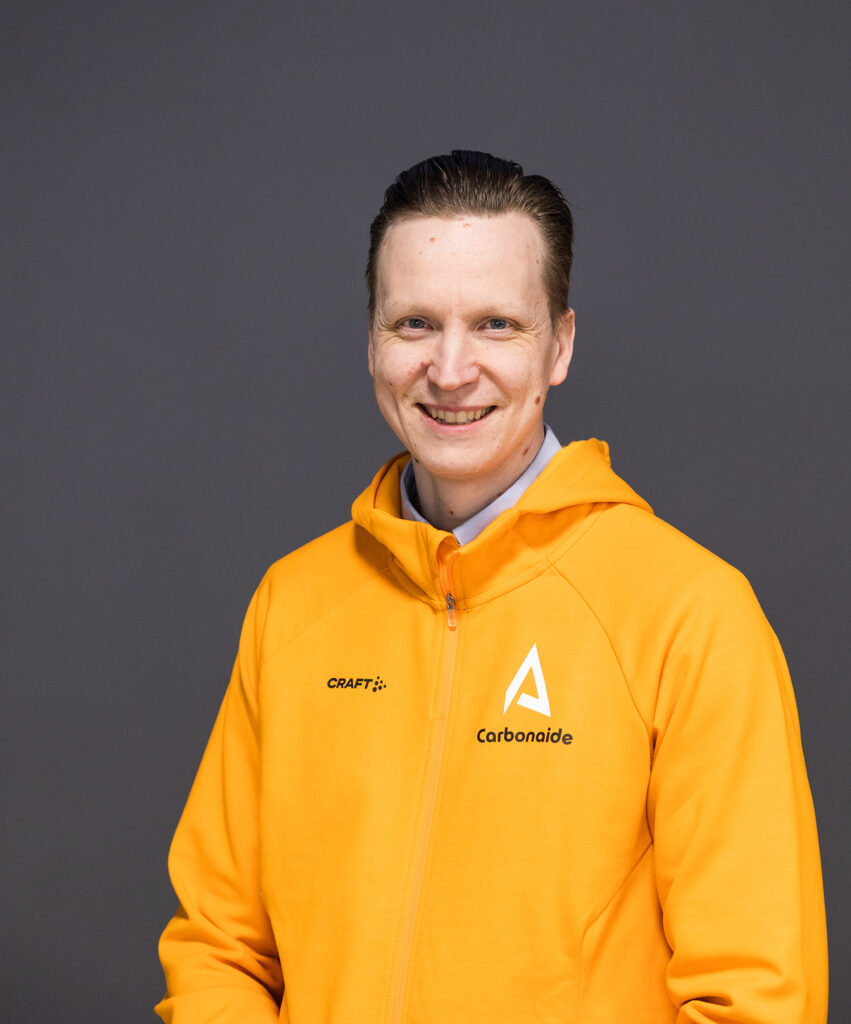It’s time to present you the finalists for the Research Entrepreneur 2024 Award. There are five entrepreneurs running four companies that qualified for the final round. The award is a recognition prize of €5,000 granted annually by the KAUTE Foundation’s Academic Entrepreneurship Fund to a researcher who has established a business based on research. The winner will be announced in April 2025.
Daniil Pokidko and Philippe Saade’s Hopscotch Canvas Connects People

Frustration can be a powerful driver for developing new innovations. When something isn’t working, it’s time to take action.
This was precisely the case for Philippe Saade and Daniil Pokidko, the founders of Hopscotch Canvas. They were both inspired by the challenges they faced during their master’s level entrepreneurship studies, where the educational focus was centered mostly on external considerations like business plans and achieving customer satisfaction..
“For us, entrepreneurs are the starting point of everything,” emphasizes Philippe Saade. “Hopscotch Canvas is a human-centered process for collaboration that enables individuals to align motivations and create actionable plans toward shared goals.” It is built on the Experiential Pattern Matching (EPM) method, and is an engaging experience that is designed for any social context and audience – from school children to seniors.
Hopscotch Canvas is the result of transforming more than a decade of research – at Aalto University and Hanken School of Economics – into practice. The method improves team dynamics, supports experiential learning, heightens trust and motivation, and promotes psychological safety.
Hopscotch Canvas has already made a significant impact on entrepreneurship education both in Finland and beyond. The future looks bright: “We’re currently building a global digital platform based on our experiences and user feedback. There’s a big need within startups and organizations for solutions like Hopscotch Canvas that align individuals and their motivations toward shared action,” Daniil Pokidko shares enthusiastically.
For Saade and Pokidko, entrepreneurship comes naturally. “Combining entrepreneurship and research is second nature to us. We want to build bridges between theory and practice, and Hopscotch Canvas is the perfect way to do that,” they conclude.
Laura Koivusalo’s StemSight Aims to Treat Corneal Blindness

Laura Koivusalo’s company, StemSight, conducts stem cell research focused on treating corneal blindness. The company’s technology enables the unlimited production of corneal epithelial stem cells.
This work is based on Professor Heli Skottman’s extensive research on using pluripotent stem cells to treat blindness. The research initially focused on age-related macular degeneration, but the company has since taken a different approach to tackling blindness. “You could say we’ve moved from the back row—meaning the retina—forward to the cornea.”
Koivusalo looks back on the founding of her now four-year-old company with enthusiasm. “I realized that no one was going to come and take our innovation from the university. If we wanted to bring our product to patients, we had to do it ourselves,” she recalls. The decision required courage and perseverance, but as a scientist-turned-entrepreneur, she was determined to make a difference.
As an entrepreneur, Koivusalo can draw on her diverse expertise and influence causes she cares about. But for her, the greatest motivation comes from the patients. “Patients are at the heart of my work. Our technology is their only chance to regain their sight. At the same time, we can give back to society by contributing to the welfare state that has supported research,” she says.
Juho Uzkurt Kaljunen’s NPHarvest is Advancing the Circular Economy

“I believe that doing good things leads to more good things,” says Juho Uzkurt Kaljunen, CEO and founder of NPHarvest. “I wouldn’t necessarily call myself very entrepreneurial, but this company is important to me,” he adds.
His company, NPHarvest, develops and sells equipment that captures nitrogen and phosphorus from wastewater, refining them into clean nutrient products. By doing so, NPHarvest helps reduce water eutrophication and improves the efficiency of wastewater treatment.
For Uzkurt Kaljunen, startup entrepreneurship is a tool for making a meaningful impact. While there are other similar technologies on the market, NPHarvest stands out in clear ways. “We focus on developing and producing user-friendly and cost-effective equipment. There really aren’t many of those available yet,” he explains. “At the same time, we align with the EU’s increasing focus on the circular economy.”
NPHarvest originated as a project at Aalto University, funded by the Finnish Ministry of the Environment, where Uzkurt Kaljunen began his PhD research. As he worked on his dissertation, he recognized the commercial potential of the research findings. “It became clear to me that the value of this work had to be built from the ground up. I see academic research as a source of fuel for entrepreneurship.”
Scalable ideas have the power to change the world—and Uzkurt Kaljunen is no stranger to that ambition. He initially pursued a degree in bioproduct technology, believing it to be the most ethical choice for a young graduate. However, he later switched to water and environmental engineering, though his idealism remained unchanged. “NPHarvest’s journey is only just beginning, and we have big plans for the future,” he concludes.
Tapio Vehmas founded Carbonaide to safeguard the next generation

“It started to look like we had a diamond in our hands,” says CEO Tapio Vehmas. His company, Carbonaide Oy, develops and manufactures technology that stores carbon dioxide permanently while also enhancing the mechanical quality of concrete. Through carbonation, concrete—often seen as an environmental problem—becomes part of the circular economy and mitigation of climate change .
Starting the company was a big step for Vehmas. At heart, he is a researcher who thrives on development work. However, as a CEO and entrepreneur, his days are now filled with sales tasks and navigating the customer interface. “Being a researcher is completely different from being a startup entrepreneur. Researchers don’t like risks, and startups are full of them,” he says with a laugh.
But when the future of the next generation is at stake, courage is a must. “At least I tried. I don’t want to tell my children that I developed this great technology but didn’t dare to start a company to industrialize the solution,” Vehmas says. “This has so much commercial potential and significant impact on climate change, and what we’re doing is unique—there was no way we could let this opportunity pass.”
Vehmas envisions a future where all concrete is carbonated. There is still a long way to go, and challenges have been unavoidable. The struggles of the financial markets and the construction industry have also made Carbonaide’s journey more difficult. “But on the other hand, we’ve done exactly what we set out to do. Our belief in what we’re building remains strong.”
Research Entrepreneur of the Year 2024 to Be Announced in April
“We have awarded the Young Research Entrepreneur of the Year prize annually since 2013. This year, we removed the age limit because we want to encourage all research-based entrepreneurs,” says Tuomas Olkku, the CEO of KAUTE Foundation.
The Research Entrepreneur of the Year award can be granted to an individual who is a full-time entrepreneur with an innovative, research-based business idea. Their company must still be in its early stages, with less than five years in operation and an annual turnover below €10 million.
Meet the past winners and finalists:
2023 Winner: Ashish Mohite, Hyperion Robotics
2022 Winners: Mikko Hänninen & Elmeri Lahtinen, Weeefiner
2021 Winners: Kai Saksela, NL Acoustics & Windi Muziasari, Resistomap
